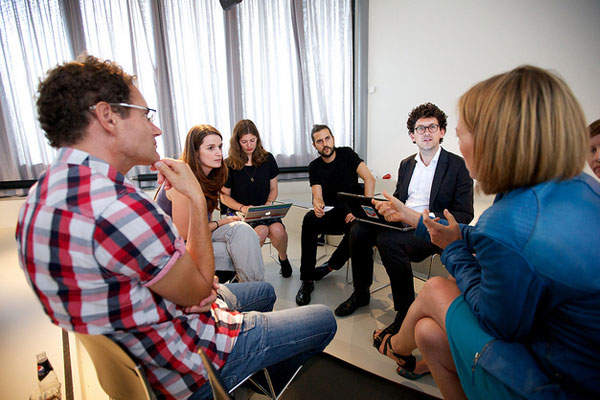(Guest post by Lyndon Wingrove)
With 40% of the UK workforce due to retire within the next decade or so, there is something of a talent crisis beginning to emerge, especially in leadership and management roles. It’s important that businesses have succession plans and candidates lined up for the future, but it’s a big challenge – how can you nurture younger candidates for roles that they may not take on for a few years?
It’s never too early to begin developing new leaders – it works out a lot more cheaply than having to bring in a new hire, and promoting a candidate internally only strengthens the company culture and overall engagement with its goals. This development can go on for years if it has to, so it’s best to start candidates on official or unofficial leadership development programmes as soon as possible if you see potential in them.
If your organisation doesn’t operate a fast-track leadership development programme, this doesn’t mean that you can’t develop candidates so they will become good team leaders in the future. There are various on-the-job techniques that can be utilised on a daily basis that positively influences soft skills and the way a candidate conducts him or herself at work.
Create a sense of ownership
One of the best ways to make someone begin to feel like a leader and develop the qualities needed to succeed in a leadership role is to take a step back and trust them to take ownership of certain aspects of their job. If they have to come running to you to approve everything they do, they’ll never feel like a trusted part of the team.
If you implement their ideas or allow them extra time to work on ways of improving the company and its processes (assuming they have any ideas on that front) they’ll feel trusted and engaged and become more assertive and confident in their roles, which bodes well for leading people in the future.
Let them struggle
Sometimes the best way to teach someone is to let them get it wrong occasionally, rather than jumping in and helping them get the job done. While it might not be conducive to a productive workplace, it will benefit everyone involved in the long run because there will be a resolve on the employee’s part not to make the mistake again.
This improves their skills immediately because they will be able to solve their own problems and help others out if needed.
Act as a mentor
There are vital differences between mentoring and coaching, some of which tend to get lost so that people think the two things are the same. In the main, though, coaching involves the teaching and application of a specific and quantifiable (in terms of ROI) skill, while mentoring is more about nurturing a relationship between a senior figure and a junior one in which the former guides and provides advice to the latter.
This relationship, used properly, can teach the junior employee how to deal with different situations and allow them to gain confidence, knowledge and encouragement within the organisation.
Test the waters
Sometimes a candidate needs a slight push in order to bring out dormant qualities and skills. This isn’t to say that they should simply be thrown in at the deep end to sink or swim – they should always be given help if they require it or are obviously struggling, but giving them significant responsibility on a large project (or a task that displays a similar level of trust) could be something that acts as a catalyst for the rest of their career.
Reward them
Make sure you recognise the achievements of the candidates, recording their growth and rewarding them financially or in other ways where appropriate. This ensures that they are kept motivated and can see that they are making progress, so they know the whole thing isn’t a waste of their time.
Tailor the rewards system to the candidate and the positive effects will be even more pronounced.
Author Bio:
Lyndon Wingrove is Director of Capabilities and Consulting at Thales L&D. Lyndon currently oversees the Thales L&D team of learning and development experts, who have a huge breadth of skills between them. Lyndon is a regular contributor to Enhance – The Magazine for Learning and Development.
Image credit: Sebastiaan ter Burg under C.C.2.0






Leave A Comment